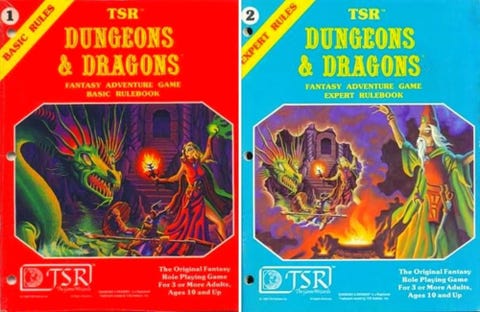As we began our foray into publishing and design, my friend and partner The Wonkee and I had a lot of discussions about what system we should gear our products towards. Since we aren’t making our own in-house system, we need to pick a system or a handful of systems that we’re gearing our products towards, right? Well, maybe not. What Wonkee and I actually settled on was to design broadly within the D20 gaming space because, as Wonkee pointed out to me, there is a universal language of gaming that applies broadly to the most popular games available. Today we’re discussing the concept of a universal gaming language and how it applies to game design. In an uncertain market where no one specific system stands out as the market leader, why not design for a broad swath of games that share a common mechanical language?
The first question that needs to be answered is whether or not a universal language truly exists. Within D20 games, there absolutely is a universal gaming language and that language is Basic/Expert D&D. It's the most cloned and referenced RPG ruleset ever made. You can find its DNA in everything from Mörk Borg to 5e. For fantasy roleplaying games, you can consider B/X the Rosetta Stone. Even people who have never played B/X can recognize many of the core tenants from that game. To be perfectly honest, this is why so many clone games fall flat. Most people are familiar with the term “heartbreaker” for this reason. For those of you who aren't familiar, a heartbreaker is an RPG that has one or two interesting ideas but mechanically speaking is more of the same we already have. With that being said though, the similarities between so many of these games makes it a bit easier to design material that works in a vast majority of these games.
Now I don’t want to make it sound like I have a problem with B/X being the universal language of fantasy RPGs. I’d be a hypocrite if that were the case. I do find it funny that people get downright hostile with each other over which B/X clone they prefer, but I can’t fault designers for working from that template over and over again. B/X is a fantastic system that has proven itself over and over again. This strikes at the very core of why B/X is the universal language of fantasy RPGs. It works so well. It’s a solid chaises. It’s the 1911 of RPGs. Someday some genius will come along and design the next stage of RPG evolution, but until such time the most ubiquitous platform will remain B/X. With 5e being put out to pasture, 6e looking like an unmitigated disaster, and many of the other offerings being too niche or too samey to slay the colossus of D&D, it seems like the safest bet is to lean into a more broad-spectrum form of design that lets players adapt your work to their system of choice with minimal effort. For the foreseeable future, I’ll be designing with a broad D20-based mindset built on a B/X foundation.




